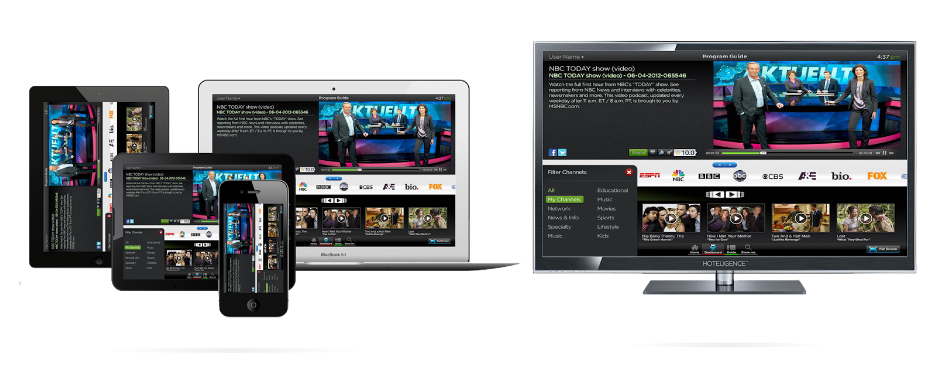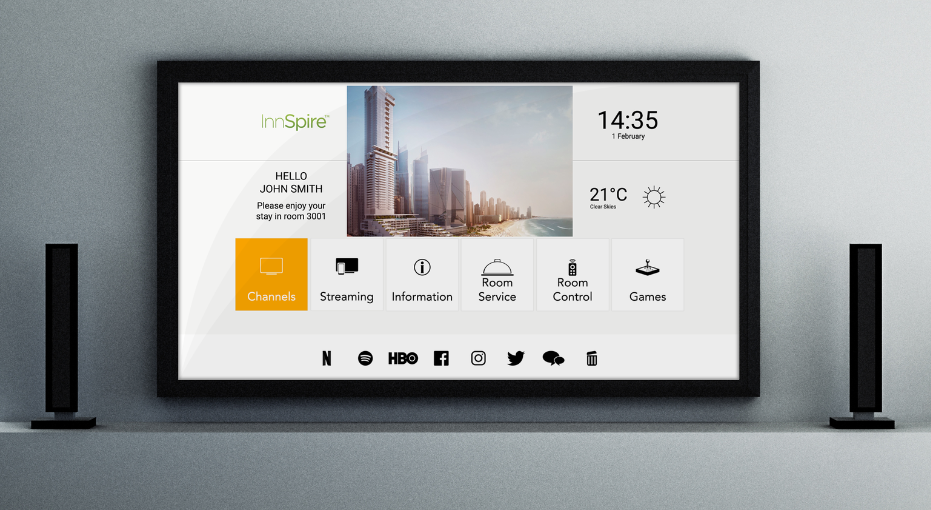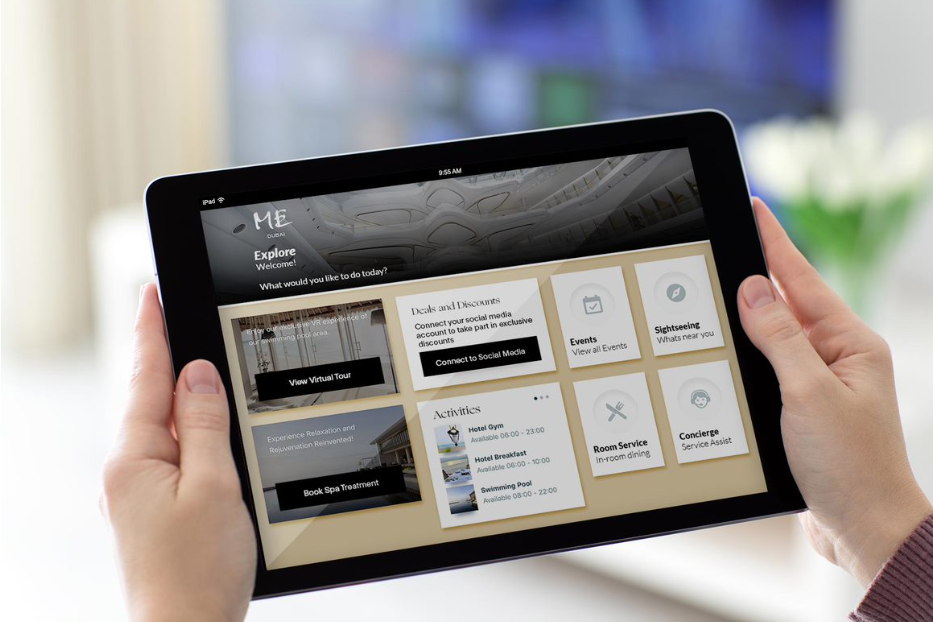Digital transformation is an essential part of all business areas, including the hospitality industry. By integrating digital technology into the hotel industry, hotel owners have the opportunity to change business operations and increase value delivery to their customers.
Hotel guests expect to take advantage of digital technologies that improve their comfort, control, and experience. While transferring from old business processes to more modern ways and going through lots of trial and error might sometimes be frustrating, developing a digital transformation strategy is necessary to meet customer expectations and increase profitability.
This blog post will discuss the four keys to hotel digital transformation to make the process easier and smoother.
How Digital Technologies are Transforming the Hotel Industry ?
Digital technologies today are transforming the hotel industry in various ways. The main aspects concern improving property management systems and enhancing customer experience.
Implementation of digital technologies significantly improves and speeds up internal processes, device connection, communication and data analysis. Consequently, this helps management and employees ensure state of the art hospitality services, get insight into trends and popular activities, and adjust their business and marketing strategies.
On the other hand, hotel guests rely more and more on new technologies and prefer premium services that immerse them in the digital world. Hotel owners should provide their guests with the opportunity to book organized trips, order room service, check in or connect to in-room devices seamlessly.
Internet of Things (IoT): Smart Rooms, Beacons & Tablets
Internet of Things (IoT) is one of the keys to successful digital transformation in a hotel. IoT refers to smart technologies integrations, specifically communication and data exchange between internet-connected devices.
Why do you need IoT?
Hotel owners should consider that they provide a second home for their guests. And while a while ago, the typical home had a TV and an ethernet cable, today, it involves high-speed internet, streaming devices, smart home assistants, voice control and more.
It’s the hotel’s duty to, at the very least, meet those criteria, and it’s better to surpass them.
Smart Rooms, Beacons & Tablets in a nutshell
IoT’s primary purpose is to connect smart technology devices, thus creating a high-tech everyday life experience. These devices are interconnected and send information to the hotel’s mobile app or assistant via IoT hardware and embedded software.
Beacons are small proximity marketing devices that send location information to hotel apps and nearby devices, helping with in-room control or F&B services. You can place an in-room tablet with multiple interconnected functions and control other in-room appliances and devices. It’s important to know that beacons require comprehensive privacy policies in place.
Unlimited possibilities
IoT offers unlimited possibilities for hotel guests, including but not limited to:
- Stream online content on in-room TVs
- Control room temperature and air-conditioning
- Order room service
- Chat with hotel staff
- Accessing hotel offers
- Checking hotel F&B menus
- Control window shades/curtains
- Change music
- Control the lighting inside the room
Guests can do all of the above via mobile devices, a tablet next to the bed or voice-controlled remotes connected to home assistants such as Amazon Alexa or Google Home.
IoT benefits in the travel and hospitality businesses
Hotel owners and management can achieve greater efficiency and provide improved guest services thanks to IoT. You can analyze guest demands and forecast seasonal or weekly trends, resulting in better business planning, generating personalized offers and driving more sales.
Artificial Intelligence (AI) in the Guest Experience
Artificial Intelligence (AI) and machine learning (ML) are the second of four hotel industry digital transformation keys. They are taking over various business areas, including providing a better guest experience in the hospitality industry.
What do hotels use AI for?
Most hotels use AI to tailor their services to specific guests and provide them with a personalized experience. This is typically done by AI concierges and chatbots that gather customer data and create an algorithm to respond to guests’ inquiries in a customized way. A typical example is suggesting booking options or entertainment activities based on previous searches.
AI benefits in the hotel industry
AI can significantly improve guest satisfaction in multiple ways. Chatbots deliver an immediate response to guest inquiries, saving their time and effort to contact hotel staff. Consequently, hotel staff has more free time to focus on providing exceptional customer service and high-priority tasks.
In addition, the more data AI collects, the more personalized responses the guest will receive, which will lead to a tailored hotel experience.
Augmented and Virtual Reality (AR/VR)
Implementing augmented reality (AR) and virtual reality (VR) is another key to digital hotel transformation. Although the idea might seem unnecessary for many, in reality, many hotels already started implementing AR and VR long ago.
What can hotels do with VR/AR?
Hotels can use AR/VR to immerse their future guests into the comfort of the property. It is highly beneficial for a guest to know what to expect from their next destination and essential if they are paying a lot for it.
Photos are not always enough to recreate a feeling of being inside the property and often don’t show essential details for the guest. A virtual tour accessible via a smartphone, tablet, laptop, or VR glasses can be crucial for booking a hotel room in another country.
Using AR/VR gives your future guests peace of mind and gains their trust because they are now sure where they are going and what they are paying for.
Mobile Remains Front & Center
Mobile phones are the fourth and oldest key in digital hotel transformation. The reason it’s stuck around for so long is that guests appreciate the opportunity to use their own mobile device and feel more comfortable and connected doing so.
Hotel mobile apps
Most hotels that use mobile phones as part of their digital transformation strategies have created branded, user-friendly and straightforward hotel apps with a great design. A hotel mobile app gives hotel guests the ability to effortlessly check-in or check out, open their hotel rooms with mobile room keys, order services, book appointments, and communicate with hotel staff without physical contact.
Other mobile uses
However, hotel mobile apps are not the only way to use mobile devices. Creating a mobile-friendly web app for guests to check-in without downloading a native app might be a huge relief for them. Another popular trend is using QR codes to quickly access hotel menus, activity schedules, booking appointments or get customer feedback.
A preferred method during the Covid-19 pandemic
Many leisure and business travelers preferred hotels that offer more digital services throughout the Covid-19 pandemic. Mobile check-ins and check-outs, contactless payments and orders, and avoiding physical key transfers were all factors that played an essential role in people’s safety and sense of security.
FAQs
What are the four keys to digital transformation in hotels?
The four main keys to digital transformation every hotel should implement in their development strategy are :
- the Internet of Things (IoT)
- Artificial Intelligence (AI) and Machine Learning (ML)
- Augmented and Virtual Reality (AR/VR)
- the use of mobile phones
What is digital transformation in the hotel industry?
Digital transformation refers not only to the implementation of new innovative technologies in the hotel industry but also to a complete operational and corporate culture change. This is not an immediate process and often involves structural reorganization, new business models and focusing on innovative solutions.
What are the three key elements of digital transformation?
Digital transformation applies in many business areas, including travel and hospitality. However, three key elements concern every type of business and its digital transformation. They are process transformation, operation transformation and customer experience transformation.
What is the role of digital technology in the hotel industry?
Digital technology helps the hotel industry tremendously improve property management systems and customer experience. It allows hotel owners to gather, analyze and interpret customer data, trends and needs and thus increase revenue by placing personalized offers. On the other hand, hotel guests are satisfied by the tailored service, complete control and ease of use.




